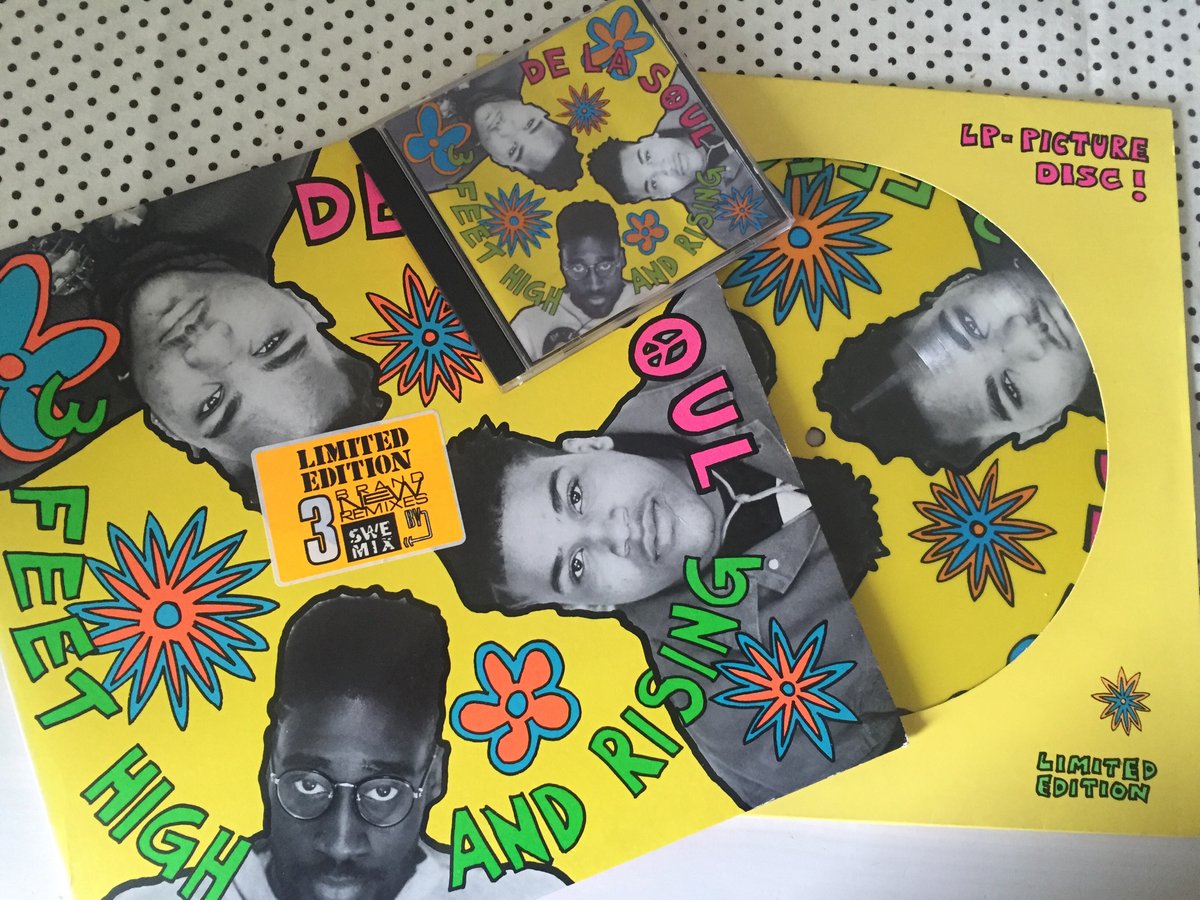De La Soul’s Fight with Tommy Boy Over Copyright and Streaming Revenues

This week, music fans were rejoicing. The legendary hip-hop group De La Soul’s catalog was finally coming to music streaming services. Three Feet High and Rising on Spotify!
Alas, it was too good to be true. It turned out that De La Soul themselves would only be getting 10 percent of the streaming revenue after costs, with label Tommy Boy taking 90 percent.
Now, everyone had speculated that De La Soul’s catalog wasn’t available on streaming because the label had never resolved the legal issues attendant to De La’s innovative use of sampling. The band and label had been sued by The Turtles for their use of a sample in a landmark case that forever changed hip-hop. In 2014, De La Soul gave away free digital copies of their albums to try to get their music to the fans. But now that the albums were to be made available via streaming, everything must have been sorted, right?
Wrong:
This sparked a boycott movement from artists/De La Soul fans like Nas, Pete Rock, and Questlove. Better to avoid Tommy Boy and the new streaming music entirely than put De La Soul in the jackpot for little reward. Tidal also announced that it wouldn’t stream the new album, in respect of the band’s wishes.
On Thursday, Tommy Boy announced that it was delaying the release of the albums on streaming services, likely missing the window for the 30th anniversary of Three Feet High and Rising, but preserving the possibility of a more equitable agreement.
“Because Tommy Boy has not had the opportunity to sit down together with De La Soul and finalize our negotiations — something we’ve wanted to do for months — we have decided to postpone the digital release of their catalog scheduled for tomorrow,” the statement reads. “We know fans are eager to hear these amazing recordings and we are hopeful for a quick resolution.”
A rep for the group did not immediately respond to Variety’s requests for comment.
While a rep for Tommy Boy stressed to Variety that sampling was not a central issue of the disagreement and “negotiating points are still to be finalized,” the group’s catalog with the label has been plagued by legal issues over uncleared samples since shortly after the release of their first album, “3 Feet High and Rising,” some 30 years ago. That album — widely considered to be one of the best and most influential hip-hop albums ever released — and several other titles from the group never have been legally available on streaming services, as the catalog has moved from Tommy Boy to Warner Bros. and back again without the sampling issues being resolved.
On Friday, De La Soul gave a lengthy interview to Billboard where they spoke on these issues, and their hope that they might be resolved:
“It’s a victory,” Pos, of De La Soul, tells Billboard. “It’s great that people who supported and understood what we mean to the culture, whether it’s someone who’s so dear and close to us like a Q-Tip, or someone who could admire the moves we’ve made creatively, but we ain’t necessarily been in the room with each other nothing but maybe three times together, like a Jay-Z. You can have people just feel like, ‘Culturally, I support and understand where they are coming from.’” …
“He [Tommy Boy’s Tom Silverman] can legally do what he wants, but the issues that I raised [was that] in all that you’re doing with what you’re able to do, did you clear it? Did you clear those samples? When he got the catalog back, is it cleared? What he said on the phone was, ‘If anything comes up, we will deal with it the way we’ve dealt with it in the past.’ And what I know that to be is that if a lawsuit comes up, we’re gonna settle because we’re in the wrong. I say we because we do suffer from that.”
As De La Soul’s Mase told Variety, the band has never earned money from its recorded catalog because of the levies the original copyright owners have placed on the band’s samples. “Let’s be straight up: We don’t really financially benefit — there’s so many infractions around this whole thing that we’ll probably never see no money from it or any project that has these infractions.”
It’s a shame, because De La Soul created some of the most exciting—and original music of the late 1980s and early 1990s. Let’s hope that the band and label can come to an agreement, the samples can be properly cleared, and we can hear these albums on whatever service we want (with the band finally getting their fair share) soon.





Stay Connected